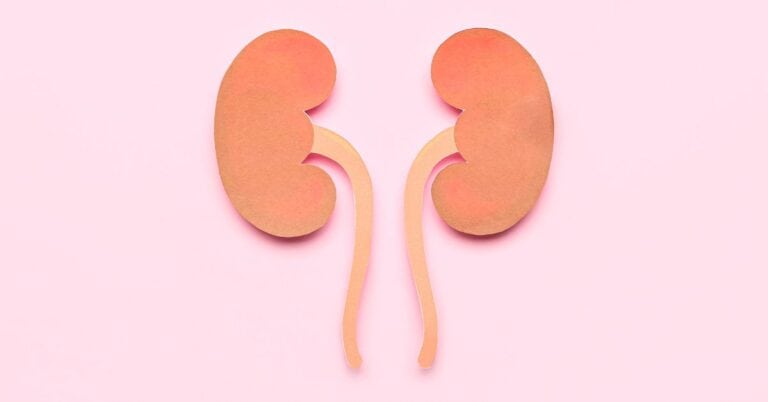How To Restore Gut Health After Alcohol: Effective Strategies
Alcohol consumption can significantly affect your gut health, disrupting the delicate balance of your intestinal flora. Over time, excessive drinking may lead to digestive issues, from increased gut permeability to inflammation. But the good news is that your gut is resilient and with the right steps, you can nurture it back to health. Initiating a gut recovery journey requires understanding the impact alcohol has had and the positive changes you can make. It’s never too late to start; even after prolonged alcohol use, your gut can begin the healing process.

To support your gut’s recovery, dietary adjustments play a crucial role. Incorporating high-fiber foods can assist in normalizing bowel movements and nourishing your gut with the nutrients it needs. Opting for foods like whole grains, fruits, and vegetables will provide the required dietary fiber necessary for a healthy digestive system. Moreover, this isn’t just about adding to your diet, but also about limiting harmful substances like sugar, which can further exacerbate gut issues. Embracing a diet that favors gut health is a strong starting point in mitigating the negative effects alcohol has already imposed.
In addition to dietary changes, supplementing with probiotics and prebiotics can also be beneficial. These supplements introduce beneficial bacteria to your gut and provide the necessary food to help them thrive. According to the Stonewall Institute Treatment Center, starting with a foundation of fibrous vegetables before introducing a probiotic regimen can significantly aid in recolonizing your gut flora. With a comprehensive approach that includes mindful eating and strategic supplementation, you can pave the way toward restoring your gut health and improving your overall wellbeing.
Understanding the Impact of Alcohol on Gut Health
Picture yourself enjoying an occasional glass of wine at dinner or a few drinks with friends over the weekend. While these moments may bring immediate pleasure, it’s important to understand how alcohol affects your gut health behind the scenes.
Alcohol consumption, even in moderate amounts, can disrupt the delicate balance of your gut microbiome—the complex community of microorganisms living in your digestive tract. This imbalance may lead to inflammation and an increase in the growth of pro-inflammatory gut bacteria.
| Effects of Alcohol | Consequences for Gut Health |
|---|---|
| Alters gut bacteria | May cause dysbiosis |
| Increases intestinal permeability | Can lead to “leaky gut” syndrome |
| Triggers inflammation | Contributes to digestive issues and may impact overall health |
These changes in the gut microbiome can weaken your gut lining, making it more susceptible to harm. When the lining is compromised, intestinal permeability increases—sometimes referred to as “leaky gut.” This condition allows toxins and harmful substances to seep through the intestinal wall and into the bloodstream, potentially triggering further inflammation and immune responses.
Furthermore, research has shown that alcohol might play a part in exacerbating digestive conditions, such as gastritis and pancreatitis How Alcohol Harms Your Gut.
Adopting healthy habits to restore your gut health post-alcohol consumption can counteract these effects. Limiting alcohol intake and incorporating a diet rich in prebiotics and probiotics are practical steps you can take. Probiotics can help repopulate your gut with beneficial bacteria, while prebiotics provide the food that helps these good bacteria thrive. For more on how to support your gut health after drinking, consider exploring further restoring gut health after alcohol.
Revisiting Nutrition for Gut Restoration
Imagine your gut as a garden that needs tending after a storm; in this case, the storm being alcohol. Your first steps involve planting the seeds of good nutrition to restore its vitality.
Incorporate Probiotic and Prebiotic Foods
Probiotics are live bacteria that add to the population of good bacteria in your digestive system. Include foods like yogurt, kefir, and sauerkraut in your diet. Prebiotics, on the other hand, are food for these bacteria. Consuming bananas, onions, garlic, and asparagus can promote bacterial growth and gut health. A striking point to note is that only 5% of Americans consume the recommended amount of fiber, a primary prebiotic, which is significant for digestive health (Mayo Clinic).
Choose High-Fiber Foods for Gut Health
High-fiber foods not only promote regular bowel movements but also help eliminate toxins from your body. Aim to include a variety of fruits, vegetables, legumes, and whole grains like barley and oats. Specifically, beans and broccoli are excellent sources of soluble fiber that can aid in gut recovery.
Hydration and Its Role in Gut Recovery
Stay well-hydrated with water; it’s vital for your digestive system. Water helps in the digestion of fiber and nutrients, thereby facilitating smooth bowel movements. Additionally, it can assist in alleviating nausea and help flush out impurities from the system.
Foods to Avoid Post-Alcohol
After alcohol consumption, it’s wise to steer clear of foods that can irritate the gut or disrupt your recovery. This includes foods high in sugar, unhealthy fats, and low in nutrients. Instead, focus on lean proteins, healthy fats, and prebiotic-rich foods to support a healthy diet.
To summarize, restoring your gut health after alcohol involves nurturing it with the right foods. This table highlights the key takeaways:
| Do Incorporate | Why? | Do Avoid | Why? |
|---|---|---|---|
| Probiotic foods like yogurt | Replenishes good bacteria | Sugary foods | Can lead to inflammation |
| Prebiotic foods like garlic | Fuels good bacteria | High-fat foods | Slower digestion and nausea |
| High-fiber fruits and vegetables | Cleanses the gut | Processed foods | Low nutrient content |
| Water and herbal teas | Aids digestion and hydrates | Alcohol | Can further disrupt gut balance |
Lifestyle Changes to Support Gut Health

Imagine you’ve just celebrated at a festive gathering, where drinks flowed freely. Now, you’re looking to rejuvenate your gut health to its former vitality. The key lies in the harmonious blend of moderation and mindfulness across various aspects of your life. By attentively tuning into your body’s needs, you can restore balance and foster a thriving gut ecosystem.
Moderate Alcohol Consumption
It’s crucial to limit your alcohol intake since excessive drinking can lead to gut inflammation and a host of digestive problems. Aim to follow the recommended guidelines for alcohol consumption to avoid bloating and potential weight gain.
Incorporate Regular Exercise
Regular movement and exercise are pivotal for maintaining weight management and improving your gut health. Even simple acts of daily movement can enhance your immune system and help reduce symptoms of stress and depression.
Prioritize Quality Sleep
A good night’s rest is more powerful than one might think, considering that sleep has a direct link to gut health. Quality sleep can help in rebalancing gut flora and plays a critical role in managing obesity.
Address Stress and Mental Health
Mental well-being is intrinsically connected to physical health. Engaging in stress-relief activities, like meditation or talking to a professional, can help to prevent stress-induced gut issues.
Avoiding Harmful Habits
Certain habits such as smoking or consuming high amounts of sugar can be detrimental to gut health. Replace these harmful habits with healthier alternatives, such as sipping herbal teas or snacking on high-fiber foods, to help your gut microbiome flourish.
Quick Tips Table
| Tips | Highlights | Links for Further Reading |
|---|---|---|
| Moderate Drinking | Less is more for gut health | Restoring Gut Health |
| Exercise | Movement equates to improvement | Exercise Benefits |
| Sleep | 7-9 hours can aid in gut repair | Sleep and the Gut |
| Stress Management | A calm mind promotes a healthy gut | Stress and Digestion |
| Avoid Smoking and Excess Sugar | Protective measure for gut bacteria | Sugar’s Impact |
In 2021, a study in the “International Journal of Molecular Sciences” made a lesser-known connection between regular alcohol consumption and changes in the microbiome composition. The equilibrium of your gut health is not just related to what you consume, but equally to how you live.
Supplementing Gut Health

Imagine your gut as a bustling city where the balance of the citizens—beneficial bacteria—dictates the vibrancy of the community. After a stormy event, like excessive alcohol consumption, rebuilding this city is crucial. Supplements can serve as tools and resources to revitalize your gut microbiome.
Probiotics and Their Benefits
Probiotics are like the reinforcements that help repopulate your gut city with beneficial residents. They contain live bacteria that, when ingested, can support the balance of your gut flora. Studies show that regular intake of probiotics can alleviate gastrointestinal symptoms associated with imbalanced gut microbiota. Specifically, fermented foods such as yogurt, kefir, and sauerkraut are rich in these live cultures and can be a delicious addition to your diet.
| Probiotic Food | Benefits |
|---|---|
| Yogurt | Rich in lactobacilli |
| Kefir | Diverse probiotic strains |
| Sauerkraut | B-vitamins and enzymes |
Prebiotics and Gut Flora
Prebiotics are the nourishment needed for the good bacteria to thrive. They are non-digestible fibers that your gut bacteria ferment, which leads to the production of short-chain fatty acids beneficial to gut health. Inclusion of foods like onions, garlic, and artichokes in your meals can provide this vital support to your gut’s existing microbes.
| Prebiotic Source | Key Component |
|---|---|
| Onions | Inulin and FOS |
| Garlic | High in prebiotic fiber |
| Artichokes | Inulin |
Anti-inflammatory Supplements
Lastly, anti-inflammatory supplements can act as peacekeepers, reducing the damage to your gut’s lining and calming inflammation. Antioxidants, such as those found in green tea or turmeric, can be particularly helpful. Indeed, turmeric has been shown to have anti-inflammatory properties that may benefit your gut health.
| Supplement | Properties |
|---|---|
| Turmeric | Curcumin as an anti-inflammatory |
| Green Tea | Antioxidants known as catechins |
Given the intricate relationship between the gut microbiome and overall health, it’s not surprising that gut health supplements have become a significant market. In fact, the global probiotics market is anticipated to reach $77.09 billion by 2025, a testament to their increasing recognition in promoting wellness.
Recovery from Alcohol-Related Gut Issues
After years of telling yourself that you’ll only have one drink, you might find your gut telling a different story. It narrates a tale of imbalance and discomfort, one that you’re eager to rewrite. Here’s how you start a new chapter in healing your gut.
Healing from Gastritis and Ulcers
Gastritis and ulcers often emerge as unwelcome footnotes in the narrative of alcohol abuse. To start reversing these conditions, you’ll want to nurture your gut lining back to health. Focus on a diet that reduces inflammation and avoids irritants. For instance, consuming anti-inflammatory foods like omega-3-rich salmon can aid healing. Avoid coffee and spicy foods which may aggravate your stomach lining.
Dealing with Bloating, Diarrhea, and Constipation
If the side effects of your drinking habit include episodes of bloating or unpredictable bowel movements, it’s essential to balance your gut bacteria and restore normal function. Probiotics can replenish beneficial bacteria and are found in fermented foods like yogurt. Additionally, a fiber-rich diet with plenty of hydration can regulate bowel movements and lessen both diarrhea and constipation.
Restoring Liver Function and Detox
Your liver has likely taken on a heavy load in metabolizing alcohol, potentially leading to liver damage or even liver disease. To support liver repair and aid in detoxifying from toxins, consider reducing processed foods and incorporating liver-supportive nutrients such as silymarin from milk thistle. The goal is to minimize the workload on your liver as it recovers from the toxic effects of alcohol.
Remember to maintain proper hydration throughout your recovery process. Water is not just an accompaniment to your meals—it’s a central character in the story of gut healing, helping to flush out toxins and keep your intestines functioning smoothly.
For more facts and actionable advice, linking to reliable sources for each point made is crucial. Visit Well+Good and Stonewall Institute Treatment Center for deeper insights into the journey of gut recovery.
The Psychosocial Aspect of Gut Health
Imagine this: After a long week, you notice your mood isn’t quite right, you’re more anxious, and even though you’re tired, you can’t seem to get good rest. Interestingly, what many may not associate with this picture is the health of their gut. Indeed, while typically overlooked, your gut health can significantly influence your mental wellness and social interactions.
The Gut-Brain Connection
Your gut and brain are in constant communication through the gut-brain axis, which integrates gastrointestinal functions with emotional and cognitive centers of the brain. This connection means that an imbalance in the gut microbiota can impact your mental health, leading to increased feelings of anxiety and stress.
- Mood & Mental Health:
- Poor gut health can dampen your mood.
- A balanced microbiome is crucial for producing serotonin, a mood-regulating neurotransmitter.
Impact on Social Life
When you’re experiencing gastrointestinal issues like bloating or fatigue, your social engagements can feel overwhelming. Facing discomfort, your desire to participate in social get-togethers can significantly dwindle, affecting your psychosocial well-being.
Nutrient Absorption & Mental Clarity
Proper nutrient absorption is paramount for maintaining energy levels and mental clarity. Alcohol can disrupt this process, exacerbating feelings of mental fog and lethargy, thus impeding your ability to engage in mentally strenuous tasks or social interactions.
Strategies for Improvement:
| Tips for Restoration | Benefits |
|---|---|
| Stay Hydrated | Helps flush out toxins and supports healthy digestion |
| Incorporate Probiotics | Enhances mood and mental health by improving gut flora |
| Practice Mindful Eating | Reduces stress eating and promotes better nutrient absorption |
Interesting Statistic:
Despite being less talked about, research shows that up to 90% of serotonin is produced in the gut, indicating a strong gut-health influence over psychological aspects.
For more information on how to support your gut and, by extension, your mental health, visiting sites that discuss gut health restoration can offer in-depth guidance and solutions.
Frequently Asked Questions About Restoring Gut Health Post-Alcohol
As you navigate the journey of restoring your gut health after alcohol consumption, knowing the right steps can make all the difference. Your gut microbiome, crucial for digestion and overall well-being, may need time and care to bounce back. Let’s explore some of the key questions that can guide you through this recovery process.
How Long Does Gut Recovery Take?
The time for gut recovery varies depending on factors like your alcohol consumption history and overall health. Generally, noticeable improvements in gut health might occur within 2-4 weeks after stopping alcohol intake, as this is when the gut lining begins to repair itself and normal gut flora start to reestablish.
Can Probiotic Supplements Fast-Track Healing?
Incorporating probiotic supplements can potentially support the healing process by replenishing beneficial bacteria. However, it’s best to pair them with a diet rich in prebiotic foods like garlic, onions, and bananas that help feed these helpful microbes.
Does Exercise Impact the Gut Microbiota?
Regular moderate exercise is linked to enhanced diversity among gut bacteria. An active lifestyle not only helps in reducing bloating but also improves bowel movements and, consequently, gut health.
What are the Signs of Improved Gut Health?
Devoting attention to detail, you may note signs of improved gut health, including:
- Reduced bloating
- More regular bowel movements
- Benefits to mental health, as the gut-brain axis communication improves
Below is a summary table highlighting some facts and recommendations.
| Aspect | Detail | Recommendation |
|---|---|---|
| Gut Recovery Time | 2-4 weeks | Monitor symptoms, stay patient |
| Probiotic Supplements | May be beneficial | Combine with a prebiotic diet |
| Exercise Impact | Positive | Engage in regular exercise |
| Health Improvement | Physical & Mental | Seek professional guidance |
These guidelines should empower you on your path to recovery. Remember, while the journey may be gradual, every step you take is a stride toward a healthier you.








